This article was co-authored by Lisa Bryant, ND. Dr. Lisa Bryant is Licensed Naturopathic Physician and natural medicine expert based in Portland, Oregon. She earned a Doctorate of Naturopathic Medicine from the National College of Natural Medicine in Portland, Oregon and completed her residency in Naturopathic Family Medicine there in 2014.
This article has been viewed 18,958 times.
If you're dealing with dry mouth and you want to treat it naturally at home, there are a lot of different home remedies you can use. Keep your mouth moist by doing things like drinking water frequently, using a homemade mouthwash, or sucking on sugar-free lozenges. Examine your diet and see if you're eating or drinking things that might make your dry mouth worse, such as caffeine, alcohol, or salty foods. Smoking or taking certain medications can also cause dry mouth. If you're not sure why your mouth is so dry in the first place, visit your doctor so they can help you decide on the right treatment.
Steps
Natural Moistening Remedies for Dry Mouth
-
1Drink water frequently to keep yourself hydrated. An easy way to prevent your mouth from getting too dry is to drink water consistently throughout the day. This will keep your mouth moist and help loosen any mucus that's present.[1]
- Carry a bottle of water around with you during the day to remind yourself to keep taking sips.
-
2Add butter, sauces, or broths to your foods to moisten them. This makes your food easier to swallow, especially if it’s super dry. Stir a little butter, cream, sauce, or other liquids into your food before eating them to help with your dry mouth.[2]
- Have a side of soup with your meal, or add a liquid like gravy or broth to moisten it.
Advertisement -
3Suck on sugar-free lozenges or hard candies to moisten your mouth. These types of candies are great for adding a little moisture to your mouth to help you produce more saliva. Keep sugar-free lozenges or your favorite sugarless hard candies in your purse, backpack, or pocket so you can suck on them throughout the day.[3]
- Chewing sugar-free or xylitol-based gum can also help.
- Opt for candies or gum with citrus, mint, or cinnamon flavors, since these can stimulate saliva production.
- It’s important that the lozenges and hard candies not have sugar in them, as sugar can make your mouth feel drier and contribute to tooth decay.
-
4Create a homemade mouthwash to soothe the dryness. Mix 1 cup (240 ml) of warm water with 0.125 teaspoons (0.62 ml) of salt to create your own saline. Combine this with 0.25 teaspoons (1.2 ml) of baking soda, stirring it well until all of the ingredients have dissolved. Swish the mouthwash around in your mouth for a few seconds before spitting it out and rinsing your mouth with water. Use this mouthwash every 3 hours for the best results.[4]
- The ingredients in this mouthwash help stimulate the production of saliva in your mouth to make your mouth less dry.
- Avoid using store-bought mouthwash that has alcohol or peroxide in it because these dry your mouth out even more.
-
5Turn on a humidifier to add moisture to the room. Plug a humidifier in to moisten the air when you’re sleeping or when your mouth is feeling particularly dry. The extra moisture in the air will help soothe your dry mouth.[5]
- Humidifiers are especially helpful during the colder months.
- Refill the water in the humidifier regularly.
Natural Diet and Lifestyle Remedies
-
1Limit your drinks that contain alcohol or caffeine. These types of drinks will only dry out your mouth even more. If you like to drink alcoholic drinks like wine or beer, or caffeinated drinks like coffee or sodas, try to drink fewer of these than you normally would to help improve your dry mouth.[6]
- Milk and water are good alternatives to caffeinated tea or fruit juice.
-
2Cut back on salty and spicy foods to avoid causing your mouth pain. Foods that have a lot of salt or spices in them tend to worsen dry mouth or cause you to feel pain when eating. Avoid super salty foods, especially dry ones like crackers, and limit the spices you add to your meals.[7]
- If you do eat salty or spicy foods, drink lots of water while eating them.
- Try to stay away from super dry foods like toast or cookies too, as these might cause pain or be more difficult to eat.
-
3Avoid smoking cigarettes to prevent your dry mouth from worsening. If you smoke cigarettes, try to smoke as little as possible and see if this helps your mouth. Smoking will only cause your mouth to become drier because it causes your mouth to produce less saliva.[8]
- Avoid chewing tobacco as well.
-
4Breathe through your nose to keep your mouth from drying. Keeping your mouth open frequently will only cause a dry mouth to become worse. Whenever you can control it, focus on breathing through your nose and keeping your mouth closed to prevent air from drying it out.[9]
- If you sleep with your mouth open, consider investing in a device that holds your mouth closed to teach you to breathe through your nose instead.
-
5Visit your doctor to find out why your mouth is dry if natural methods don’t work. The best way to find out how to fix a dry mouth is to visit your physician so they can decide why your mouth is dry in the first place. This could be due to something like an illness or a side effect of a medicine you’re taking, so getting it checked out sooner rather than later is recommended.[10]
- Schedule an appointment with your doctor and make a list of any medication you’re taking or health problems you’ve been having along with your dry mouth.
Expert Q&A
-
QuestionHow do I stop producing more saliva after brushing? How do I stop the feeling of dryness in my mouth that causes bad breath?
 Cristian Macau, DDSDr. Macau is an oral surgeon, periodontist, and aesthetician at Favero Dental Clinic in London. He received his DDS from Carol Davila University of Medicine in 2015.
Cristian Macau, DDSDr. Macau is an oral surgeon, periodontist, and aesthetician at Favero Dental Clinic in London. He received his DDS from Carol Davila University of Medicine in 2015.
Doctor of Dental Surgery Try drinking a glass of plain water after brushing and your saliva flow will calm down. The oral receptors will send this information to the brain and saliva flow will reduce. Mouth dryness can be solved by chewing a mint gum or even squeezing a few drops of lemon juice into a glass of water. Dry mouth and bad breath usually occur in patients who smoke, so trying to reduce or quit smoking is also a recommendation.
Try drinking a glass of plain water after brushing and your saliva flow will calm down. The oral receptors will send this information to the brain and saliva flow will reduce. Mouth dryness can be solved by chewing a mint gum or even squeezing a few drops of lemon juice into a glass of water. Dry mouth and bad breath usually occur in patients who smoke, so trying to reduce or quit smoking is also a recommendation. -
QuestionDoes pool water make your mouth dry?
 Shari Forschen, NP, MAShari Forschen is a Registered Nurse at Sanford Health in North Dakota. Shari has worked in healthcare since 1996 and her expertise lies in acute care bedside nursing on a medical oncology floor. She received her degree from Medcenter one College of Nursing in 2003 and her Family Nurse Practitioner Masters from the University of North Dakota in 2014. Shari is a member of the American Nurses Association.
Shari Forschen, NP, MAShari Forschen is a Registered Nurse at Sanford Health in North Dakota. Shari has worked in healthcare since 1996 and her expertise lies in acute care bedside nursing on a medical oncology floor. She received her degree from Medcenter one College of Nursing in 2003 and her Family Nurse Practitioner Masters from the University of North Dakota in 2014. Shari is a member of the American Nurses Association.
Master's Degree, Nursing, University of North Dakota Based on research I have done, the short answer is "possibly." High chlorine content can cause throat irritation, thus causing dry throat/mouth sensation. It could signal an allergy as well, so being in tune to your body's reactions and avoiding those triggers is the best method of treatment. If you are a swimmer and can not avoid the pool, then try managing by keeping water on deck to sip on occasionally and ensuring that dehydration is avoided during exercise (people often don't realize they are sweating while exercising in water).
Based on research I have done, the short answer is "possibly." High chlorine content can cause throat irritation, thus causing dry throat/mouth sensation. It could signal an allergy as well, so being in tune to your body's reactions and avoiding those triggers is the best method of treatment. If you are a swimmer and can not avoid the pool, then try managing by keeping water on deck to sip on occasionally and ensuring that dehydration is avoided during exercise (people often don't realize they are sweating while exercising in water).
References
- ↑ https://my.clevelandclinic.org/health/treatments/10902-dry-mouth-treatments
- ↑ https://my.clevelandclinic.org/health/treatments/10902-dry-mouth-treatments
- ↑ https://www.mskcc.org/blog/five-natural-remedies-dry-mouth-xerostomia
- ↑ https://www.mskcc.org/blog/five-natural-remedies-dry-mouth-xerostomia
- ↑ https://www.ncbi.nlm.nih.gov/pmc/articles/PMC4278738/
- ↑ https://my.clevelandclinic.org/health/treatments/10902-dry-mouth-treatments
- ↑ https://www.ncbi.nlm.nih.gov/pmc/articles/PMC4278738/
- ↑ https://oralcancerfoundation.org/complications/xerostomia/
- ↑ https://health.clevelandclinic.org/breathe-mouth-nose/



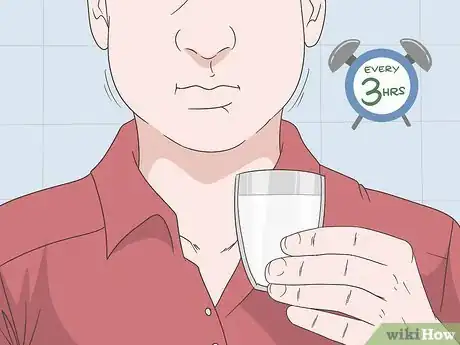
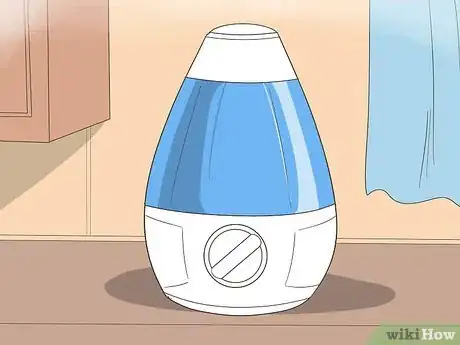
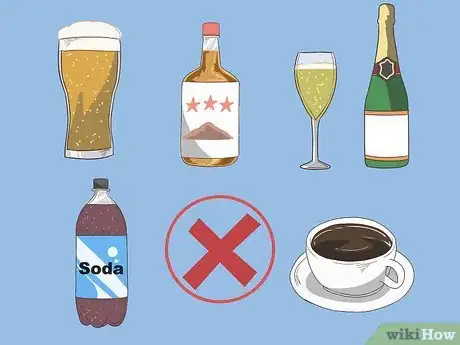


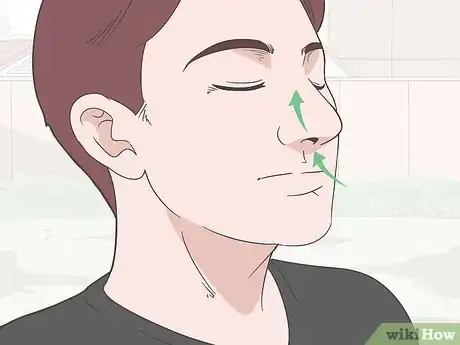
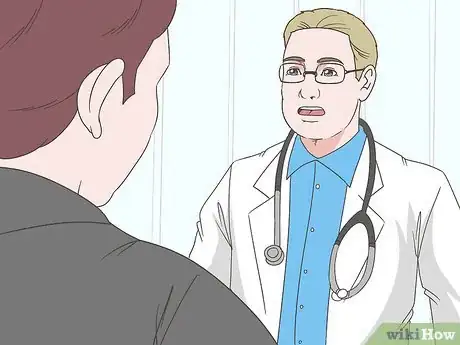

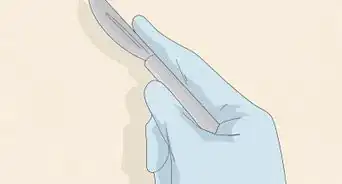
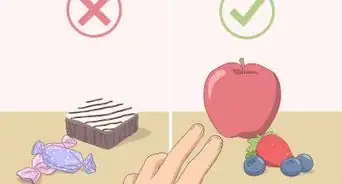





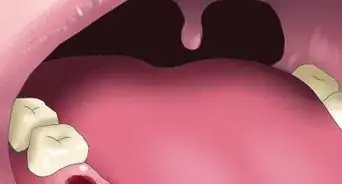


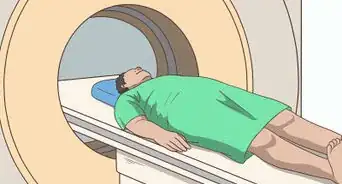
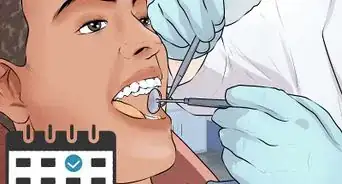
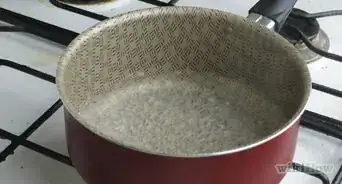







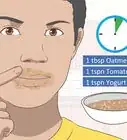

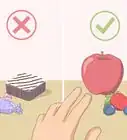




































Medical Disclaimer
The content of this article is not intended to be a substitute for professional medical advice, examination, diagnosis, or treatment. You should always contact your doctor or other qualified healthcare professional before starting, changing, or stopping any kind of health treatment.
Read More...